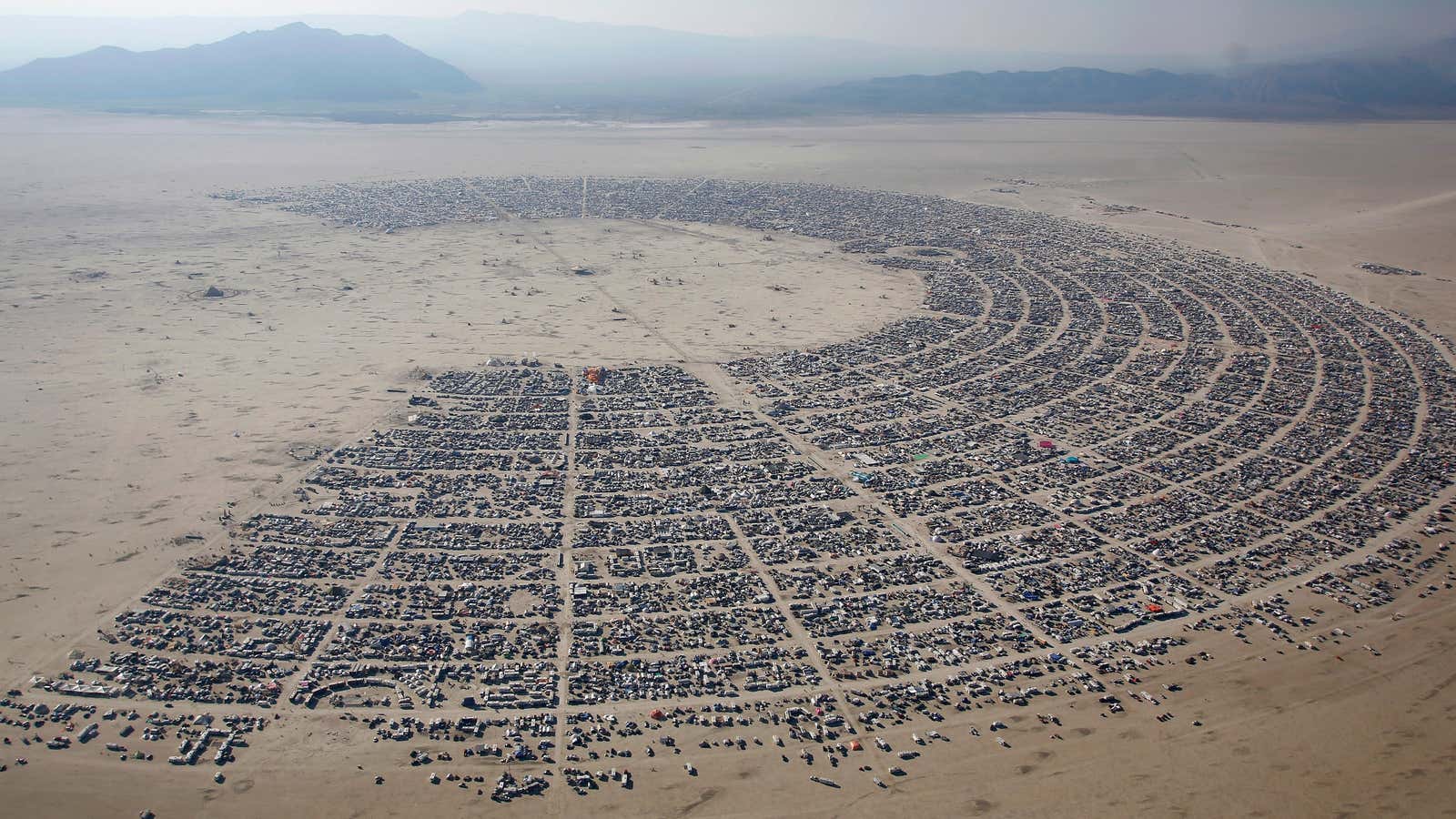Absence is a common, if painful, theme in human affairs, and when my younger son left Boston to make his way in Seattle, I had a category for his travels. He would be like the Phoenician sailors who plied the Mediterranean, trading cedar and linen for gold. Or the New England whaling captains off for years at a time to the far Pacific. He’d be gone, I’d be home, but I could take some comfort in the technology we’d use to ease the ancient burden of separation.
That strategy worked until it didn’t.
On August 28, Matthew flew to San Francisco to meet a friend and drive to the Burning Man festival in the Nevada desert. His last email read: “Will be out of cell and internet range for awhile. Will call on the far end. Love M.” Two days into his trip, beyond the reach of email and text messages, his grandfather died.
It was a long-expected passing of a good soul, though at the time, a shock as all deaths are. Of my many concerns during those days, a large one was the prospect of burying my wife’s father before Matthew ever knew the man had died. Like travelers of old, our son was oblivious to developments that normally would have rocked his world. How did ancient travelers gird themselves for such isolation? They must have known the wheel would turn in their absence. Loved ones would die, fortunes would be reversed.
In the Nevada desert, my son may as well have been a Phoenician trader sailing at the ends of the known world. I left a message, aware that while the funeral would provide closure for us, Matthew could be left standing alone when he finally learned the news. As his grandfather’s coffin slipped into the ground, he might be spending a causal day at Burning Man observing art installations or barbecuing. Would he forgive himself? He had done nothing wrong, yet a heavy burden was poised to fall on him should he emerge from the desert too late.
I needn’t have worried.
A 12-hour drive to San Francisco and work back in Seattle on Tuesday morning prompted a return just after the directors of Burning Man torched an 80-foot effigy, the highlight of a week-long festival. When my son regained cell service at around 3 a.m. Pacific time, he heard my message and sent a text. “So sad. How’s Mom?” This from a car traveling 70 miles an hour, on the other side of the continent. For most of human history, travel (at whatever speed) erected a wall of absolute silence between the road and home. No longer. The device in my hand chirped, I texted back, and a phone call followed. The worst, his not knowing, was averted. That would have been consolation enough, but technology had another surprise for us, one that collapsed distance altogether.
His brother arranged it. Matthew arrived in San Francisco early Sunday morning, just four hours before the funeral in Baltimore. Only a military jet flying at Mach 4 could have delivered him on time to the graveside. But both boys had iPhones. “I’ll ask the rabbi if I can link you in,” said Jonathan. A wise woman unafraid to blend the ancient with the modern, she said: “Of course. Bring him here.”
We did.
She delivered a eulogy. We chanted and shoveled dirt onto the coffin as Matthew watched, sitting in a too-large, borrowed suit before his phone as his brother held the camera of his phone to the service. The day was blazing hot; I heard cicadas. I also heard, then saw, a young man 3,000 miles away weeping and knew, sad as he and we all were, that he would carry no special burden, for we—that is, all our friends and family—mourned as one.
The bible does not report if Moses used FaceTime at Sinai; but in these latter days when the Lord doesn’t appear to be entering human history all that much, we settle for the miracles we can with the tools we have. The video link was that miracle, and it salvaged the day for one young man. It also raised the ghosts of all those who could not make it home on time: the millions over the millennia who traveled and the millions who stayed behind, waiting. Silence was their measure. In the days of my own waiting, I understood as never before the costs of such silence and how thin is the veneer that separates us from our forebears.
The internet and smart phones have rocketed us to a new age; but we fall back to earth just as quickly when the power grid fails or someone wanders out of cell range. Then we revert to what we once were and, I believe, still are: Phoenician traders and whaling captains, travelers far from home longing for news.
